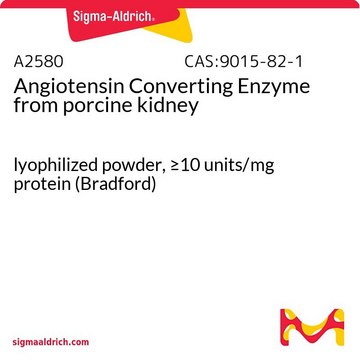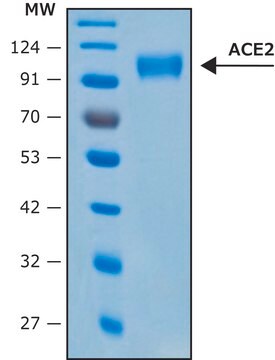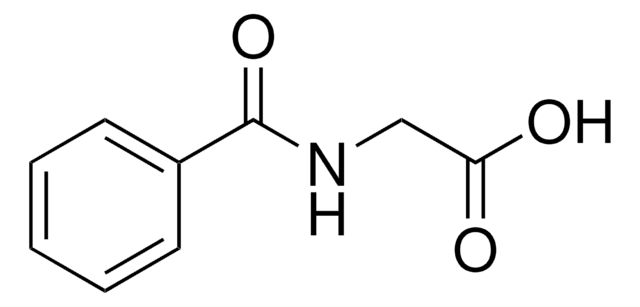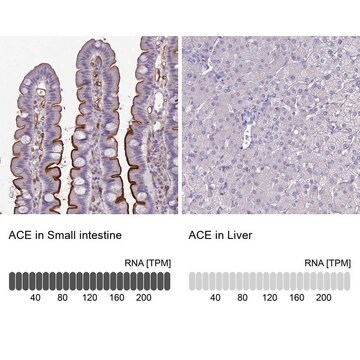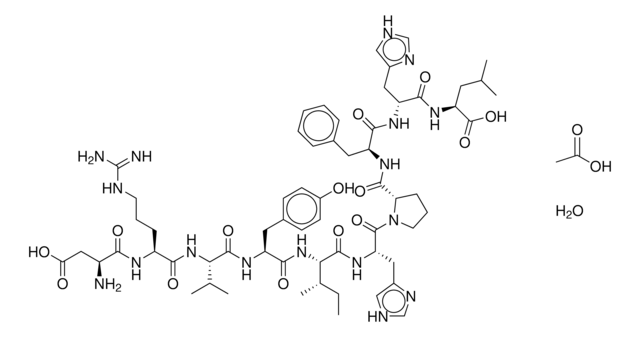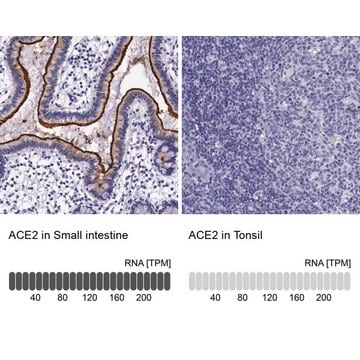SAE0075
Angiotensin Converting Enzyme, ACE, human
recombinant, ≥10 U/mg, expressed in HEK 293 cells
Synonyme(s) :
ACE, ACE1, CD143, DCP, DCP1, Dipeptidyl carboxypeptidase I, Kininase II, Peptidyl-dipeptidase A, Peptidyldipeptide Hydrolase
About This Item
Produits recommandés
Produit recombinant
expressed in HEK 293 cells
Niveau de qualité
Essai
≥95% (SDS-PAGE)
Forme
lyophilized powder
Activité spécifique
≥10 U/mg
Poids mol.
calculated mol wt 138 kDa (The protein migrates as a 180 kDa protein on SDS-PAGE due to glycosylation)
Numéro d'accès UniProt
Conditions d'expédition
dry ice
Température de stockage
−20°C
Description générale
Spécificité
Actions biochimiques/physiologiques
Définition de l'unité
Forme physique
Code de la classe de stockage
11 - Combustible Solids
Classe de danger pour l'eau (WGK)
WGK 2
Point d'éclair (°F)
Not applicable
Point d'éclair (°C)
Not applicable
Faites votre choix parmi les versions les plus récentes :
Certificats d'analyse (COA)
Vous ne trouvez pas la bonne version ?
Si vous avez besoin d'une version particulière, vous pouvez rechercher un certificat spécifique par le numéro de lot.
Déjà en possession de ce produit ?
Retrouvez la documentation relative aux produits que vous avez récemment achetés dans la Bibliothèque de documents.
Les clients ont également consulté
Notre équipe de scientifiques dispose d'une expérience dans tous les secteurs de la recherche, notamment en sciences de la vie, science des matériaux, synthèse chimique, chromatographie, analyse et dans de nombreux autres domaines..
Contacter notre Service technique
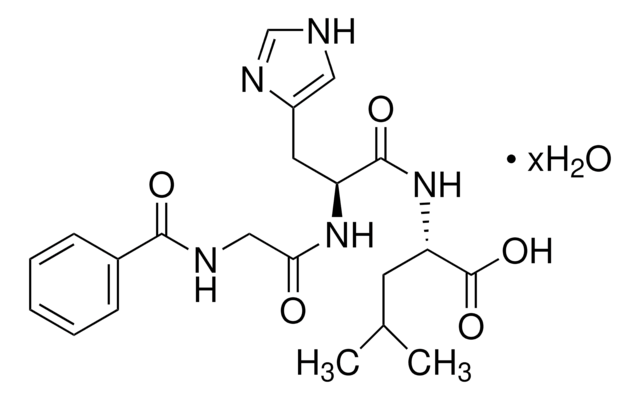
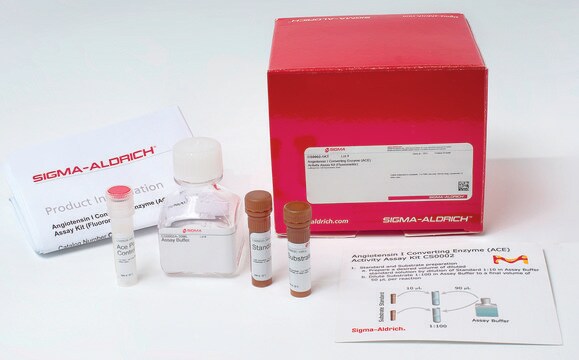
![N-[3-(2-Furyl)acryloyl]-Phe-Gly-Gly](/deepweb/assets/sigmaaldrich/product/structures/225/349/530bc714-b1a8-4fdb-8082-a39329ee730a/640/530bc714-b1a8-4fdb-8082-a39329ee730a.png)
